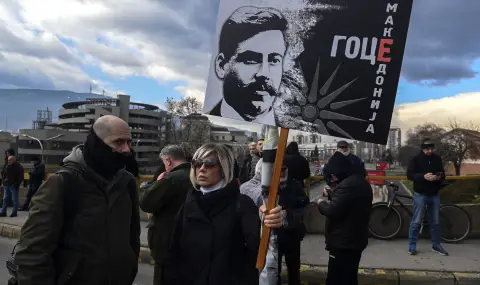Representatives of the Polish Ministry of Foreign Affairs will soon visit Sofia, where, among other issues, the situation with the European integration of North Macedonia will be discussed, said in an interview with “360 degrees”, broadcast on MRT1, the acting Ambassador of Poland to North Macedonia Mariusz Brimora, BTA reported.
According to him, the enlargement to the countries of the Western Balkans is part of the priorities of the Polish presidency of the EU, but he is skeptical of the ideas of the government of North Macedonia for changes to the constitution that would enter into force after the country becomes a member of the EU.
“The impasse (in which the European integration process of North Macedonia is) is one hundred percent a bilateral issue and as such must be resolved by the participating countries countries. What we can do, I mean the other EU members, is to support a solution that is aimed at reaching a compromise in any international forum or at the EU level and we will definitely support such a solution. But it is up to you to start talking and agreeing on a compromise (with Bulgaria). In addition, in my opinion, and I am speaking based on the Polish experience, there is another factor that is very important and that is reconciliation. Personally, I think that a process of reconciliation with the Bulgarians should begin, because, as far as I know, the problem that is blocking progress in EU enlargement is part of a much broader and much longer historical dispute. The Poles, from their own experience in reconciliation with the Germans, know this very well and are ready to share this experience...”, Brimora said in the interview.
According to him, despite the claims of “some allies of the government” in Skopje that Bulgaria might adopt a constitutional amendment that would enter into force after North Macedonia completes negotiations, “there are no indications that Brussels or Bulgaria would change their position”.
“As you heard, the new EU Commissioner for Enlargement, Marta Coss, said that she expects North Macedonia to implement the constitutional changes. It all has to do with the old Latin principle in international law – pacta sunt servanda, which means that treaties must be respected. We started the conversation about certain challenges that Europe is facing, starting from the war that is on our borders to all the different crises that we are fighting. This could lead to neglecting your efforts for European integration. If you add to this some unpredictability, such as the arrival of a new administration in the US, which may shift the focus from the EU to other issues, such as control of the Panama Canal or the peace project in Ukraine, then it may turn out that the EU's priorities will change and this moment may pass. Therefore, if I were your advisor, which I am not and this is just my personal opinion, then I would like your government to weigh the pros and cons and see what it needs to do to get the most benefit for the citizens of North Macedonia,“ says Brimora in the interview.
